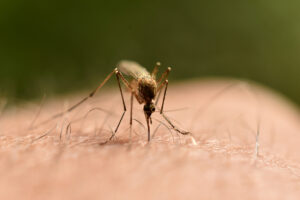 HYANNIS – Most people who use artificial sweeteners instead of sugar do it for weight control or because they have diabetes. But new research shows that could be counter-productive.
HYANNIS – Most people who use artificial sweeteners instead of sugar do it for weight control or because they have diabetes. But new research shows that could be counter-productive.
A study presented at the Endocrine Society meeting in 2018, indicated that consumption of low-calorie sweeteners could actually predispose people to prediabetes and diabetes.
“Our stem cell-based studies indicate that low-calorie sweeteners promote additional fat accumulation within cells not exposed to these substances, in a dose-dependent fashion – meaning that as the dose of sucralose is increased more cells showed fat droplet accumulation,” said lead researcher Sabyasachi Sen, MD, in a press release from The Endocrine Society.
“This most likely occurs by increasing glucose entry into cells through increased activity of genes called glucose transporters.”
Sen noted that his team’s findings have the most implication for people who have obesity and prediabetes or diabetes because they have more insulin resistance and may have more glucose in their bloodstream as a result.
This information is not new to Amy Rose Sager, dietitian for the Visiting Nurse Association of Cape Cod. She pointed to other studies that show that artificial sweeteners decrease satiety and alter glucose homeostasis, which leads to weight gain, which is another risk factor for diabetes.
“We know that these artificial sweeteners increase your appetite and make you want to eat more,” she said. “They do know that substances like saccharine may actually change the type of bacteria in us, leading to obesity.”
Studies in both animals and humans demonstrate the effect on gut bacteria and how it changes the metabolism of sugar, Sager said.
“Gut bacteria have a huge impact on our whole system. I always say 60 to 70 percent of our immune system is in our gut. So, when you change that, you are really going to influence your health,” she said.
Changing a person’s gastrointestinal bacteria can cause illnesses such as irritable bowel disease and emerging research shows that it may be linked to other health conditions too, like heart disease, cancer and arthritis, she said. It also increases the inflammatory response.
Links to Heart Disease and Stroke
A more recent study published in the American Heart Association journal, Stroke, in March 2019, indicated that artificial sweeteners increased the risk of ischemic strokes, coronary heart disease and all-cause mortality in post-menopausal women. It used data from 81,714 women from the Women’s Health Initiative Observational Study. The study also indicated that those with a BMI of 30 or higher and black women were at the highest risk.
Rather than consuming artificial sweeteners as a way to watch your weight, Sager recommends eating half of a dessert with real sugar instead. Another suggestion is to use small amounts of natural sweeteners like maple syrup and to add fiber like oatmeal or oat flour to your desserts.
“Fiber can help control blood sugar,” she said. “If you are making a dessert with fiber in it, it’s going to be a better benefit for you than just consuming something that’s loaded with sugar and carbohydrates that have no fiber.”
Even though most artificial sweeteners are added to beverages, they can be found in many other foods on the shelf that you may not expect, like jellies, over-the-counter medications, desserts and chewing gum, she said.
“I think if people can avoid artificial sweeteners, it’s best,” she said. “If they want to use them or they feel like they have to have them, I would encourage no more than two servings a day.”
























